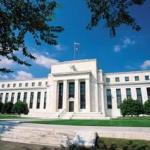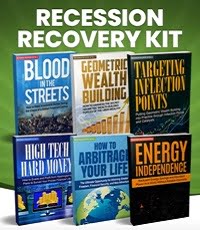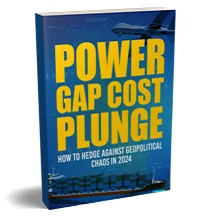
One of their key findings: The five largest banks, which include Bank of America and JPMorgan Chase, enjoy a “too-big-to-fail” advantage in financial markets. The study also found that large U.S. banks can borrow at about 0.31 percent less than smaller banks. Why is that?
The Fed’s research didn’t identify the exact reason. But, perhaps, the big banks can borrow more cheaply because investors know the U.S. government would bail them out in a financial crisis. While the Fed economists didn’t give this reason, they did note that the big banks can take bigger risks.
“The new research shows ‘it is improper to ask the taxpayer to underwrite the non-commercial banking operations of a complex bank holding company,’” said Dallas Fed President Richard Fisher. This only seems fair.
Why should the taxpayer pick up the tab when CDO mortgage swaps go against AIG in a big way? As far as we can tell, they shouldn’t.
The Origin of a Bad Idea
The taxpayer certainly doesn’t share in the rewards when these trades are positive. Yet the government encourages a “heads I win, tails you lose” world. The big investment banks reap big profits taking on big risks, while the losses are socialized by tax payers. What’s the origin of this bad idea?
“The idea that some firms may be too big to fail appears to go back as far as 1975 in connection with Lockheed Corporation and the financial difficulties that firm experienced at the time,” begins a report titled Large and Complex Banks. “It was, however, the demise of Continental Illinois Bank in 1984 that provided solid supporting evidence for that idea.
“Continental Illinois, which was the seventh-largest U.S. bank by deposits, experienced runs by large depositors following news it had incurred significant losses in its loan portfolio. Concerns that a failure of Continental Illinois would have significant adverse effects on the banks that had deposits with it led regulators to take the unprecedented action of assuring all of Continental’s depositors—large and small—that their money was fully protected. Subsequently, during Congressional hearings on Continental Illinois, the Comptroller of the Currency indicated that the eleven largest banks in the United States were too big to fail and would not be allowed to fail.
“The hypothesis that some banks will be rescued because they are too big to fail is important because it can have far-reaching implications. If investors, creditors in particular, believe certain banks are too big to fail, they will discount risk when providing those banks with funding. This insensitivity of financing costs to risk will encourage too-big-to-fail banks to take on greater risk. The largest banks’ risk taking, in turn, will drive the smaller banks that compete with them to also take on additional risk.”
This, in effect, is a massive moral hazard…
How to Achieve Honest Banking
A moral hazard is the idea that a person or party shielded from risk will behave differently than if they were fully exposed to the risk. A person who has automobile theft insurance, for instance, may be less careful about securing their car. For they know the financial consequence of a stolen car would be endured by the insurance company.
Similarly, financial bail-outs, of both lenders and borrowers, by governments, central bankers, or other institutions, produce a moral hazard. They encourage risky lending and risky speculation in the future because borrowers and lenders believe they will not have to carry the full burden of losses. The losses will be covered by the taxpayer.
But if the big banks knew there were no safety nets. If they knew the Treasury or the Fed wouldn’t be there to backstop their losses. They would behave differently or suffer the consequences of going belly up.
In this respect, the New York Fed economists, using the balance-sheet data for 224 banks in 45 countries starting in March, 2007, found higher levels of impaired loans after an increase in government support. In other words, government safety nets’ compelled banks to make greater amounts of bad loans. The problem the government improvers sought to correct, they only made worse.
Thus we’ll close today with a modest proposal. The best way to end the too-big-to-fail advantage of the big banks is to let them fail. We thought the government was on to this when Lehman vanished from the face of the earth in late 2008.
Yet shortly after that they lost their nerve. What a shame they didn’t let them all blowup. Sure, the sky would have fallen. But they would have given the world honest banking for three generations or more.
Sincerely,
MN Gordon
for Economic Prism





